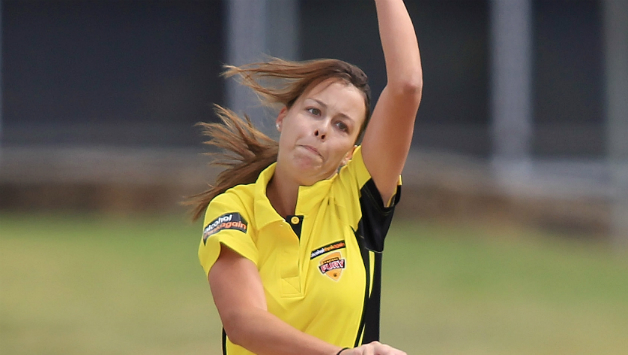
Cricket Country Staff
Editorial team of CricketCountry.
Written by Cricket Country Staff
Published: Feb 04, 2016, 02:25 PM (IST)
Edited: Feb 04, 2016, 02:33 PM (IST)


Australian woman cricketer Piepa Cleary has been banned for a period of six months by Cricket Australia (CA) for placing bets worth AUD 15.50 on a Test match last year. A statement from the board stated that 19-year-old Cleary, who played for the Perth Scorchers in the Women’s Big Bash League (WBBL), has accepted the charges against her of placing the bets during the historic day-night Test between Australia and New Zealand at the Adelaide Oval that took place on November 27-29. Cleary is the second Australian female player to be banned for betting in international cricket following the two-year ban handed to Sydney Sixers player Angela Reakes, who was found guilty of placing a AUD 9 bet on the ICC Cricket World Cup 2015 final between Australia and New Zealand. READ: Angela Reakes suspended for placing Aus $9 bet during ICC World Cup 2015 final
“We continue to remind all elite cricketers and officials that betting on any form of cricket is strictly prohibited. It is outlined in the anti-corruption education that we deliver annually and is written into our anti-corruption code.
“Piepa has heard this message many times through the anti-corruption education sessions that we deliver and accepts that in placing the bets she exercised poor judgment,” CA Integrity Unit head Iain Roy was quoted as saying according to a report on Sydney Morning Herald.
“We are naturally disappointed that one of our players has been involved in an incident such as this,” WACA chief Christina Matthews was quoted as saying.
According to the report, Cleary’s penalty was tougher due to factors such as that of her receiving a face-to-face anti-corruption training from CA’s head of security Sean Carroll two months before placing the bets.
This website uses cookies so that we can provide you with the best user experience possible. Cookie information is stored in your browser and performs functions such as recognising you when you return to our website and helping our team to understand which sections of the website you find most interesting and useful.
Strictly Necessary Cookie should be enabled at all times so that we can save your preferences for cookie settings.
If you disable this cookie, we will not be able to save your preferences. This means that every time you visit this website you will need to enable or disable cookies again.
